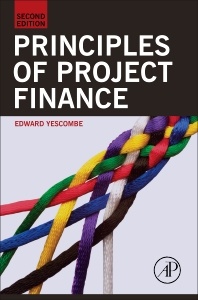Principles of Project Finance (2nd Ed.)
Auteur : Yescombe E. R.

The Second Edition of this best-selling introduction for practitioners uses new material and updates to describe the changing environment for project finance. Integrating recent developments in credit markets with revised insights into making project finance deals, the second edition offers a balanced view of project financing by combining legal, contractual, scheduling, and other subjects. Its emphasis on concepts and techniques makes it critical for those who want to succeed in financing large projects. With extensive cross-references and a comprehensive glossary, the Second Edition presents anew a guide to the principles and practical issues that can commonly cause difficulties in commercial and financial negotiations.
1. Introduction 2. What is Project Finance? 3. Project Development and Management 4. The Project-Finance Markets5. Working with Lenders 6. Types of Project Agreement 7. Common Aspects of Project Agreements 8. Sub-Contracts and Other Related Agreements 9. Commercial Risks 10. Macro-Economic Risks 11. Regulatory and Political Risks 12. Financial Structuring 13. The Financial Model 14. Project-Finance Loan Documentation 15. Public-Sector Financial Support 16. Export-Credit Agencies and Development-Finance Institutions 17. Recent Market Developments and Prospects for Project Finance
- Provides a basic introduction to project finance and its relationship with other financing techniques
- Describes and explains: sources of project finance; typical commercial contracts (e.g., for construction of the project and sale of its product or services) and their effects on project-finance structures; project-finance risk assessment from the points of view of lenders, investors, and other project parties; how lenders and investors evaluate the risks and returns on a project; the rôle of the public sector in public-private partnerships and other privately-financed infrastructure projects; how all these issues are dealt with in the financing agreements
Date de parution : 12-2013
Ouvrage de 578 p.
15x22.8 cm
Thèmes de Principles of Project Finance :
- Finances / monnaie / crédit / banque / inflation / bourse
- Initiation à l'économie, théories et études économiques
- Économies et politiques économiques mondiales : relations économiques internationales / douanes, exportation
- Gestion financière
- analyse, budget, trésorerie, financement, investissement, gestion prévisionnelle
Mots-clés :
Availability-based Contract; Bank lending; Bank loans; Base Case; Bilateral DFIs; Bond issuance; Bonds; Cash flow; Commercial banks; Commercial risks; Compensation; Compensation events; Concession; Concession Agreement; Contract mismatch; Contracting Authority; Contracts PPPs; Credit risk; Currency exchange rates; DCF; Debt; Debt financing; Debt guarantees; Development-finance institutions; Direct Agreements; Discounted; Dispute resolution; Excusing causes; Export-credit agencies; External advisors; Financial crisis (2008); Financial engineering; Financial model; Financial risks; Financial structuring; Force majeure; Funding; Government Support Agreement; Grants; Guarantees; Hedging; Host Country; IRR; Independent power projects; Inflation; Infrastructure projects; Insurance; Interest rates; Investors; Lender; Lender due diligence; Lenders; Lending; Loan agreement; Loan documentation; Loans; Long-term debt markets; Macro-economic risks; Macro-economics; Market developments; Mismatch; Multilateral DFIs; NPV; Non-bank lenders; Offtake Contract; Offtaker; Operating costs and revenues; Output-based aid; PFI; PPP; PPP Contract; PPPs; Partial credit guarantee; Performance bonding; Permits; Political risk cover; Political risks; Private sector lenders; Private-sector finance; Project Agreement; Project Company; Project Contracts; Project company; Project costs; Project development; Project finance; Project financing; Project risks; Project-finance debt; Public procurement; Public sector financial support; Public-private partnership; Public-sector loans; RAB finance; Refinancing; Regulatory risks; Residual value risk; Revenue risks; Revenue support; SPV Sponsors; Secondary; Sensitivities; Social impact bonds; Sponsors; Sub-Contracts; Tax increment finance; Taxation; Termination



